Foreword
The Insta360 GO Ultra was officially launched in Taiwan on August 21, 2025, and I successfully got my hands on it on September 13. This article will share the unboxing process and my experience after about a month of use.
Accessory Contents
I chose to purchase this in mainland China, mainly because it was widely out of stock in Taiwan at the time, and the price was more competitive. The bundle, including the camera, a screen protector, and a 128GB memory card, cost RMB 2,798 (approximately TWD 12,487). Compared to the Taiwanese distributor’s price of TWD 13,980 for the camera alone, I not only saved about TWD 1,500 but also received a memory card and screen protector, making it a much better value.
Additionally, I bought a third-party protective case for about TWD 80 to provide basic protection for daily carrying. As for other accessories like a selfie stick or mounts, you can consider more affordable third-party options based on your needs.
| Category | Description |
|---|---|
| Standard Kit | GO Ultra Main Unit |
| Standard Kit | 1 Lens Guard (pre-installed on the lens by default) |
| Standard Kit | 1 Quick-Release Safety Cord |
| Standard Kit | 1 Magnetic Easy Clip |
| Standard Kit | 1 Magnetic Pendant |
| Seller’s Gift | 128 GB Original Memory Card |
| Seller’s Gift | Original Screen Protector |
| Additional Purchase | Third-party Protective Case |
Unboxing Process
Outer Box and Initial Look at Accessories
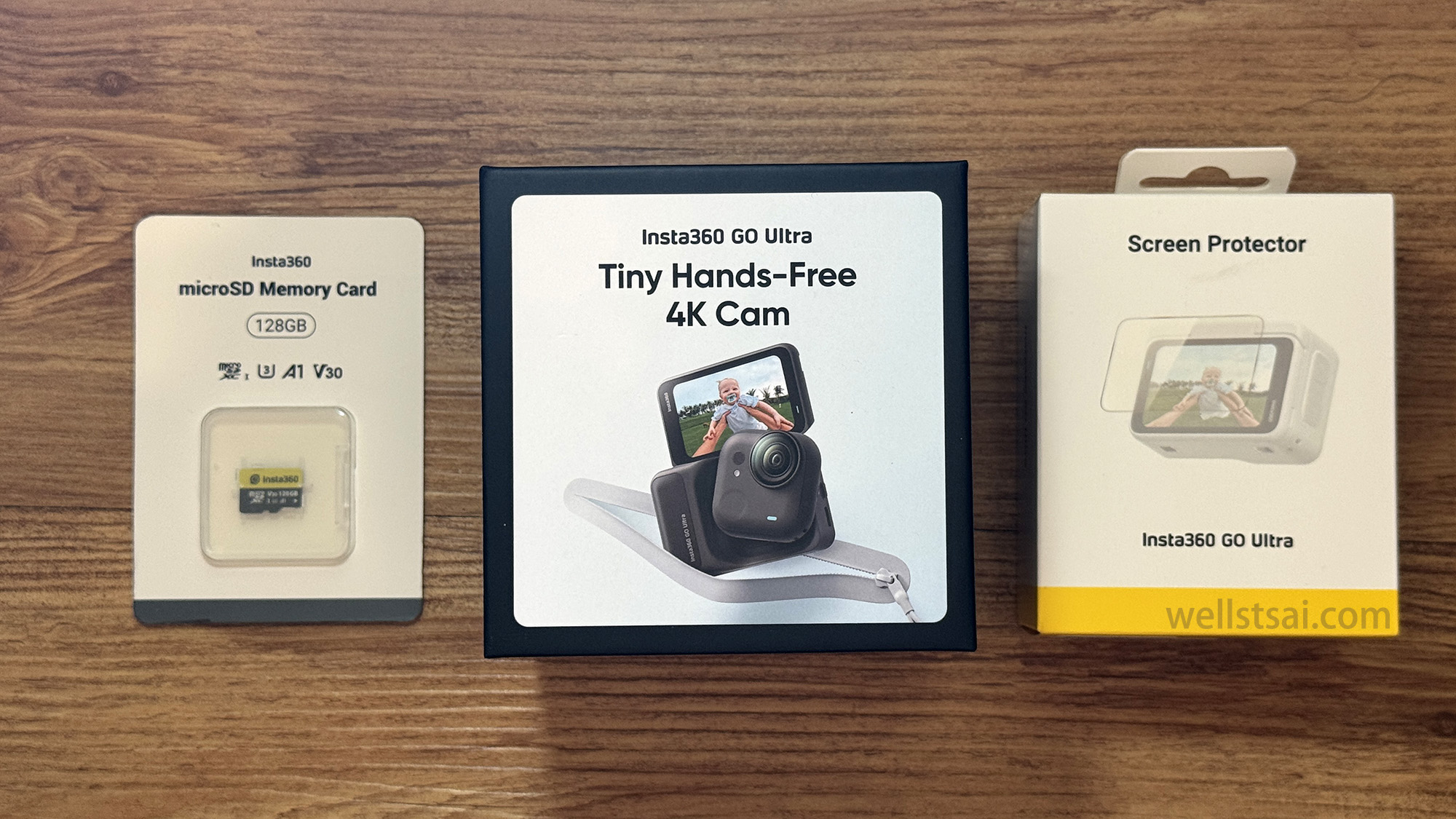
The delivery included three small boxes: the camera’s main packaging, a 128GB original microSD card, and a screen protector.
Screen Protector
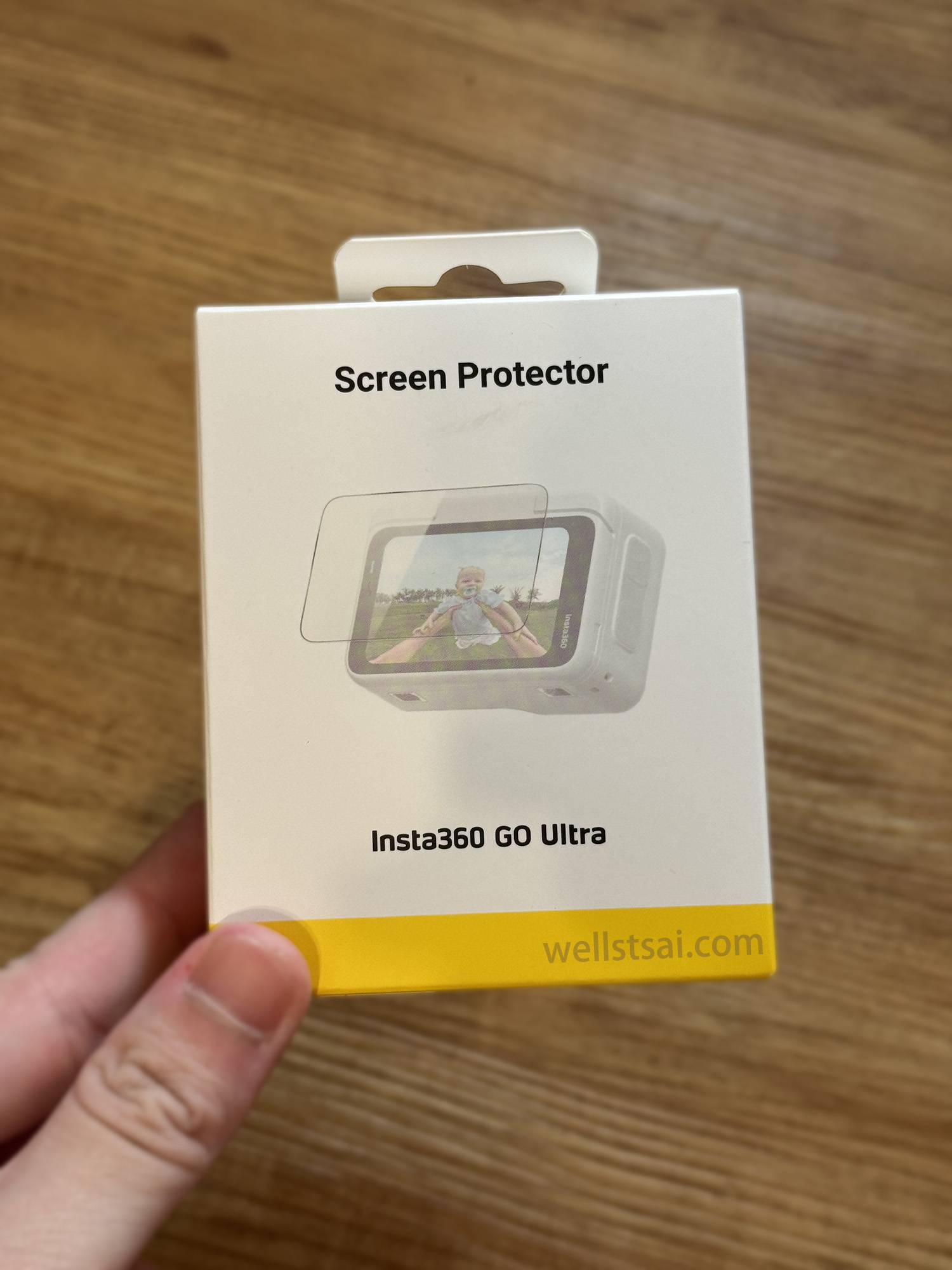
The included screen protector comes in a pack of two. It is small and fits the screen perfectly. With the help of the provided tools, it’s easy to align and smooth out air bubbles, so you can apply it yourself without much worry.
Memory Card
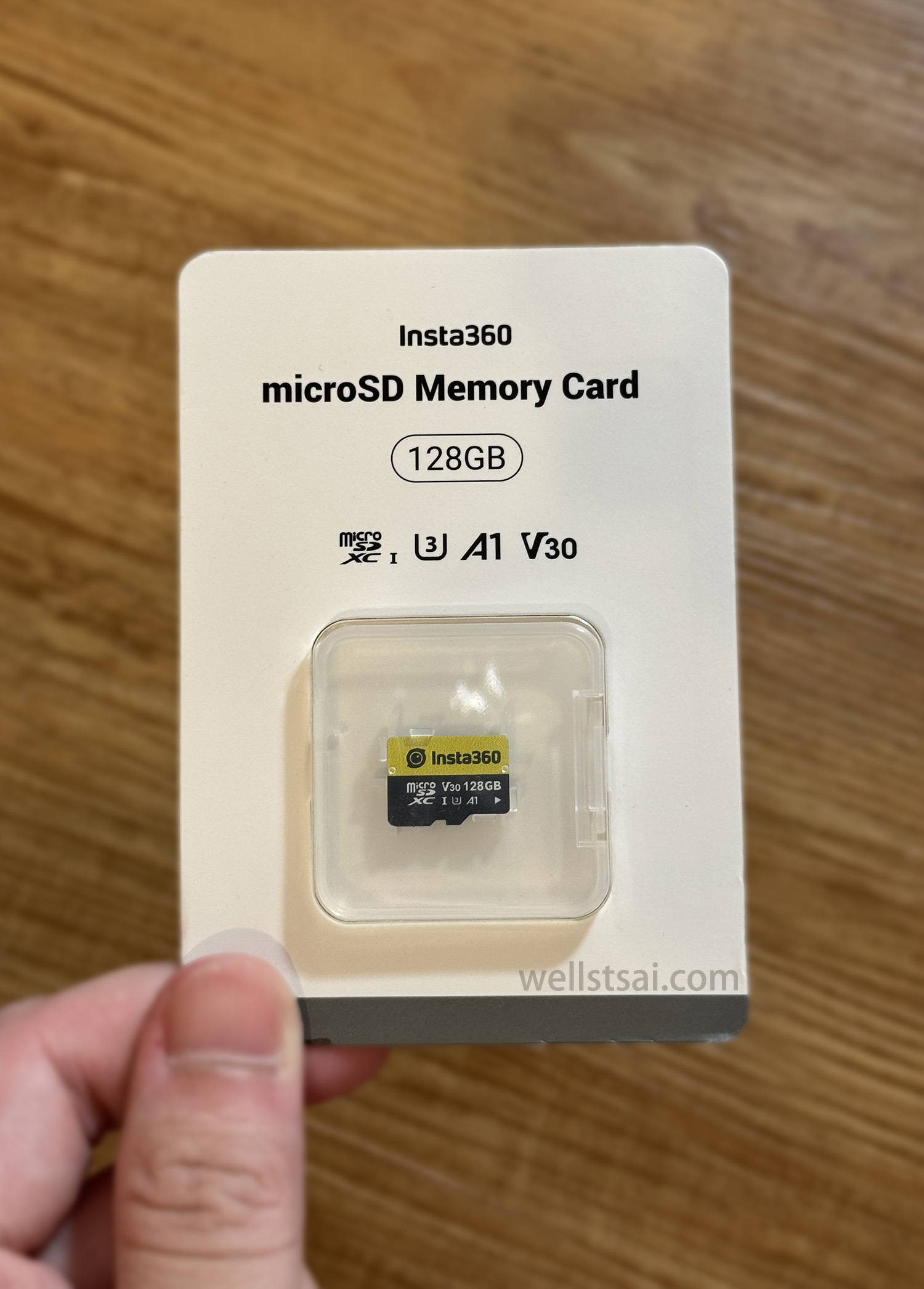
The seller included an official Insta360 128GB microSD card, which has a speed class of UHS-I U3 / V30, making it perfectly capable of handling the write speeds required for smooth 4K recording.
To ensure stable video recording, the Insta360 GO Ultra has the following memory card requirements:
- Transfer Standard: UHS-I
- Speed Class: V30 or higher
- File Format: exFAT
- Maximum Capacity: Up to 1TB
For reference, a 128GB card can store approximately 2.5 hours of 4K 30fps footage, so you can choose a capacity that best suits your shooting habits.
Real-World Capacity Test in Japan
During a five-day trip to Japan, I recorded footage in 4K 30fps format. Here is the daily video capacity:
| Date | Total Capacity (GiB) | Total Duration |
|---|---|---|
| 10/05 | 67.76 | 01:34:00 |
| 10/06 | 66.97 | 01:48:27 |
| 10/07 | 45.69 | 01:06:52 |
| 10/08 | 71.94 | 01:39:45 |
| 10/09 | 72.24 | 01:39:21 |
| Average | 64.92 | 01:33:41 |
| Total | 324.60 | 07:48:25 |
The data shows that the average capacity per minute is about 709.60 MiB/minute. Shooting for 1.5 hours a day can easily exceed 60 GB. For users with high-volume recording needs, it is strongly recommended to choose a 256GB or larger memory card.
If you use a 128GB card, you’ll need to back up your files after about 2 hours of recording. My current workflow is to transfer the files from the SD card to my iPhone daily, and then back them up to an external SSD. Additionally, since the Go Ultra body only supports USB 2.0 transfer speeds (transferring a 70GB file to an iPhone takes over 25 minutes), it is advisable to carry a USB 3.0 card reader to significantly reduce backup time.
Camera Packaging Box
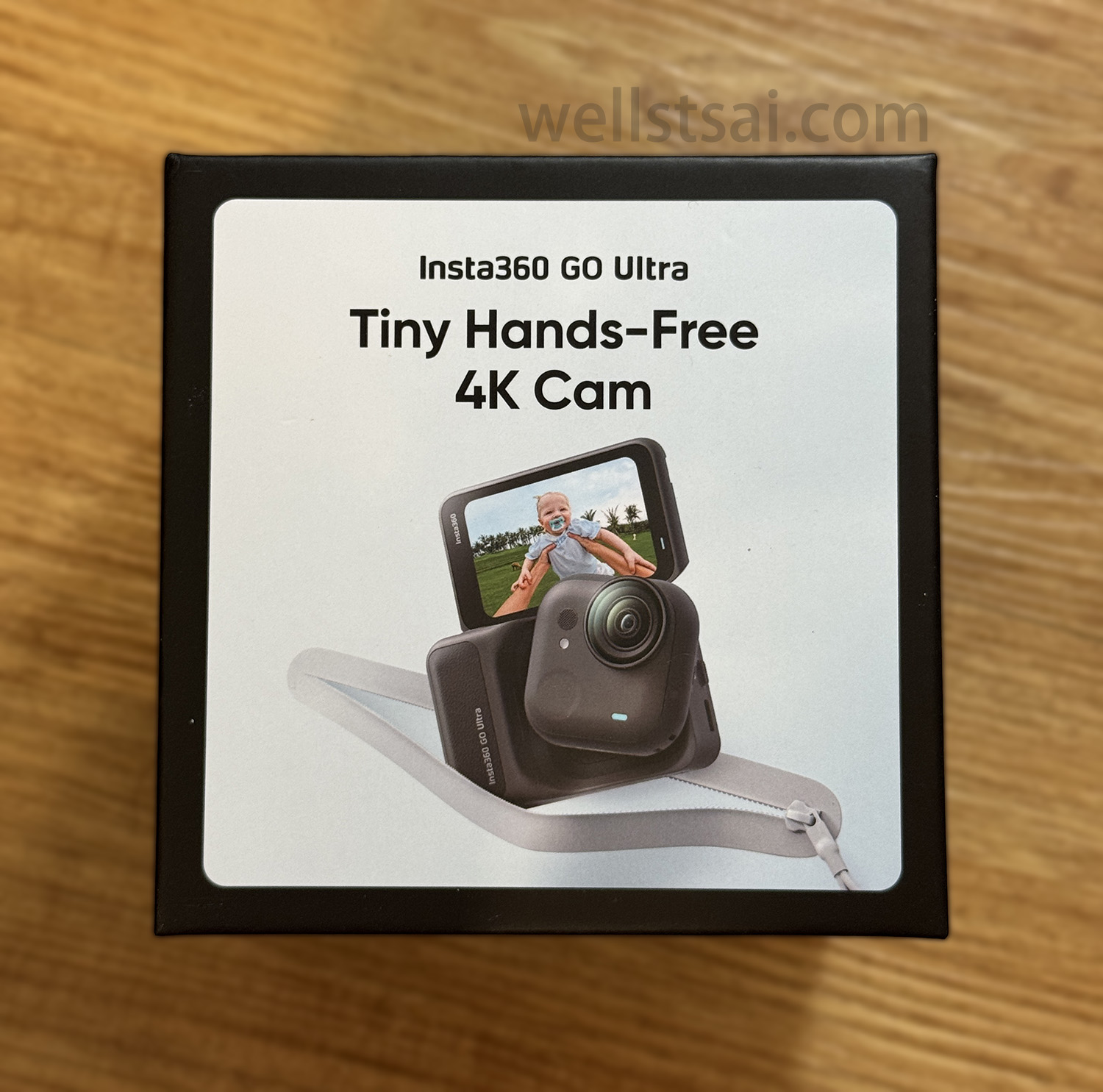
The main unit’s box is labeled “Tiny Hands-Free 4K Cam,” highlighting the GO Ultra’s key features: compact size, hands-free mounting, and 4K video.
This perfectly fits my needs. While the iPhone delivers excellent recording quality, it is bulky for long vlogging, walking shots, or time-lapse, and its conspicuous size can feel uncomfortable.
The “Tiny” feature makes it so lightweight you barely feel it’s there, while “Hands-Free” refers to its magnetic design that lets you mount it anywhere, truly freeing up your hands. For someone like me who values flexibility and discreet shooting, this is the ideal solution.
Camera Body
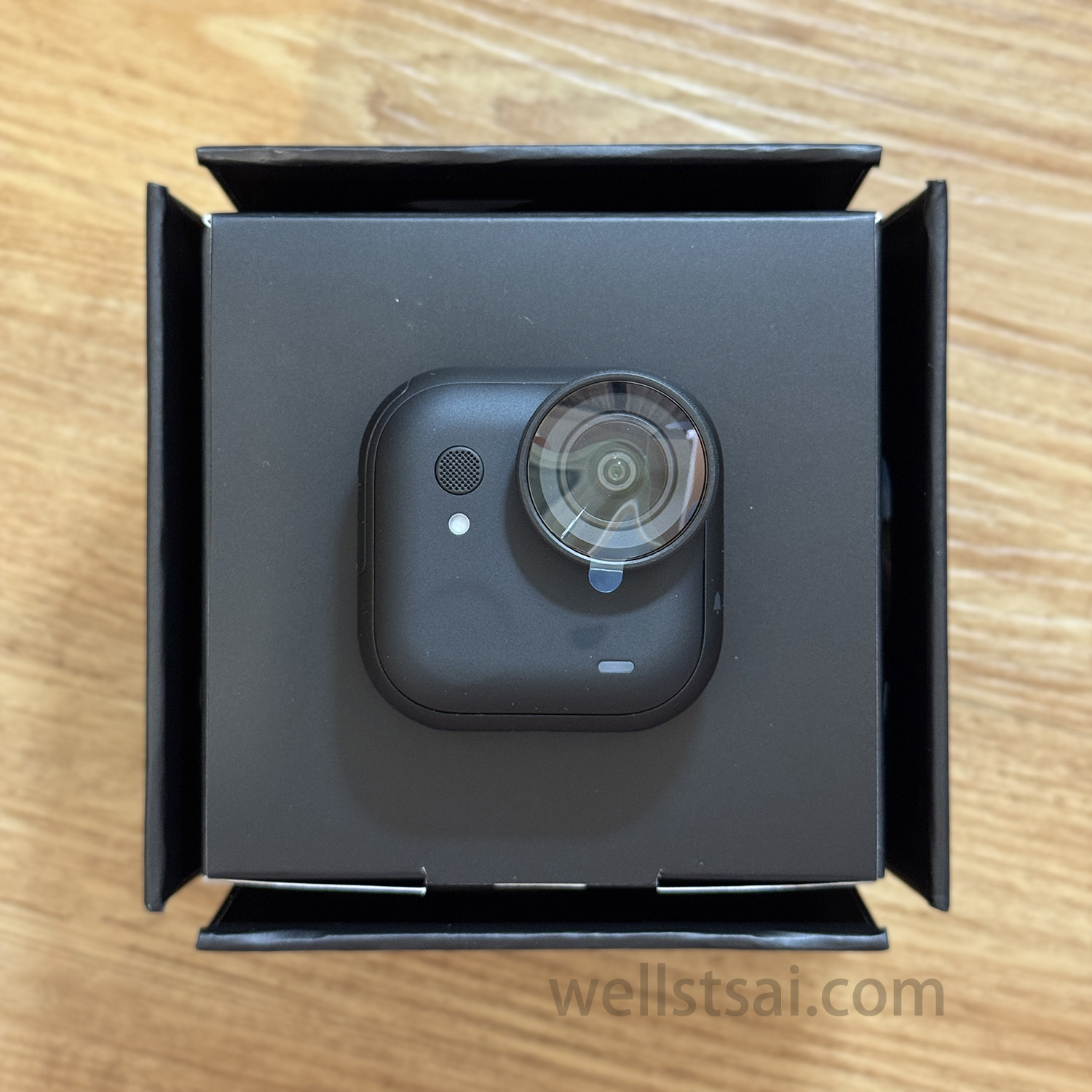
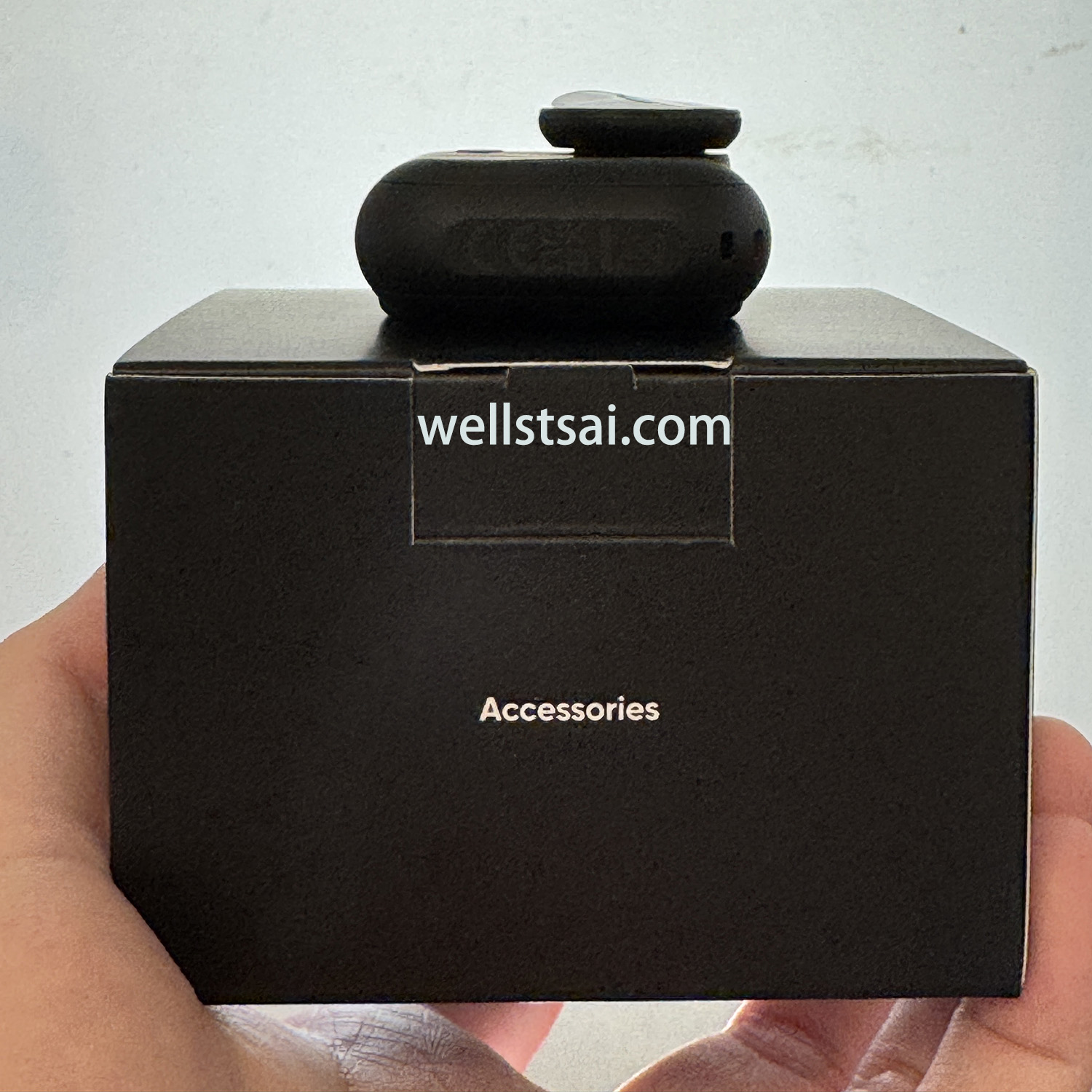
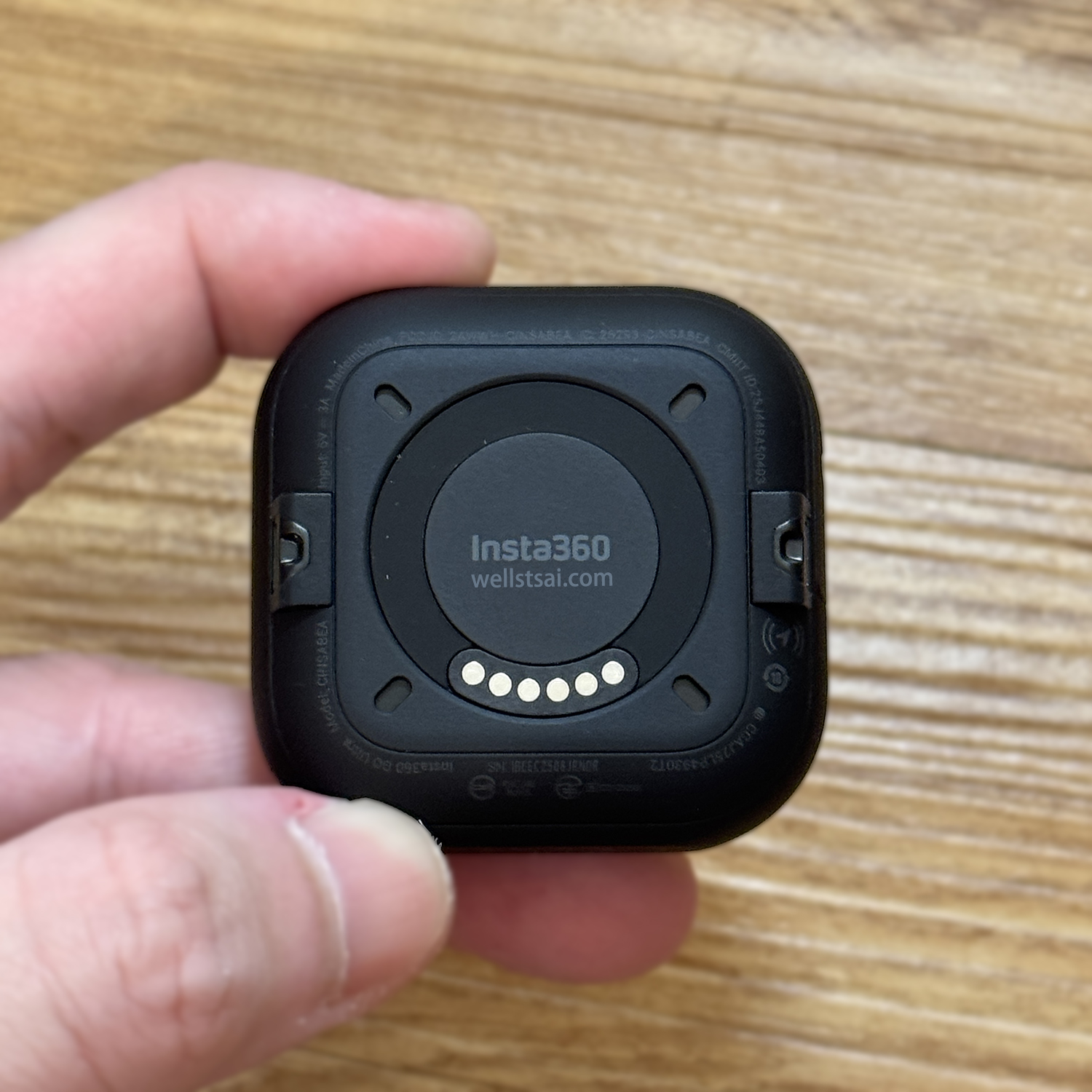
Opening the box reveals the GO Ultra main unit, held magnetically in the center. Remember to remove the protective film from the lens.
The back of the camera features metal contacts for charging and connecting accessories, showcasing its intuitive modular design.
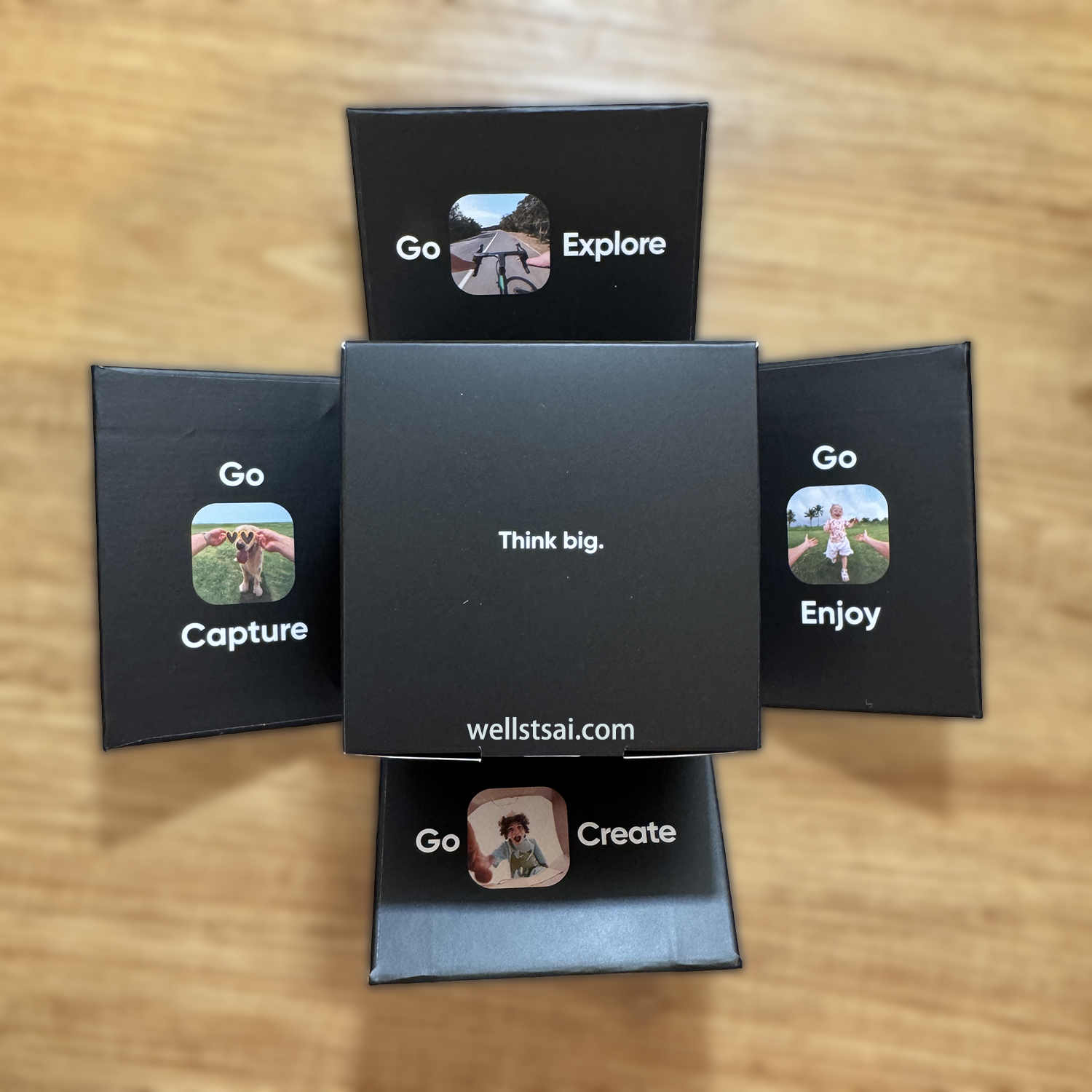
Below the main unit is the accessory box. The top layer holds the camera, and the bottom layer contains the accessories.
Inside the Accessory Box
Manuals
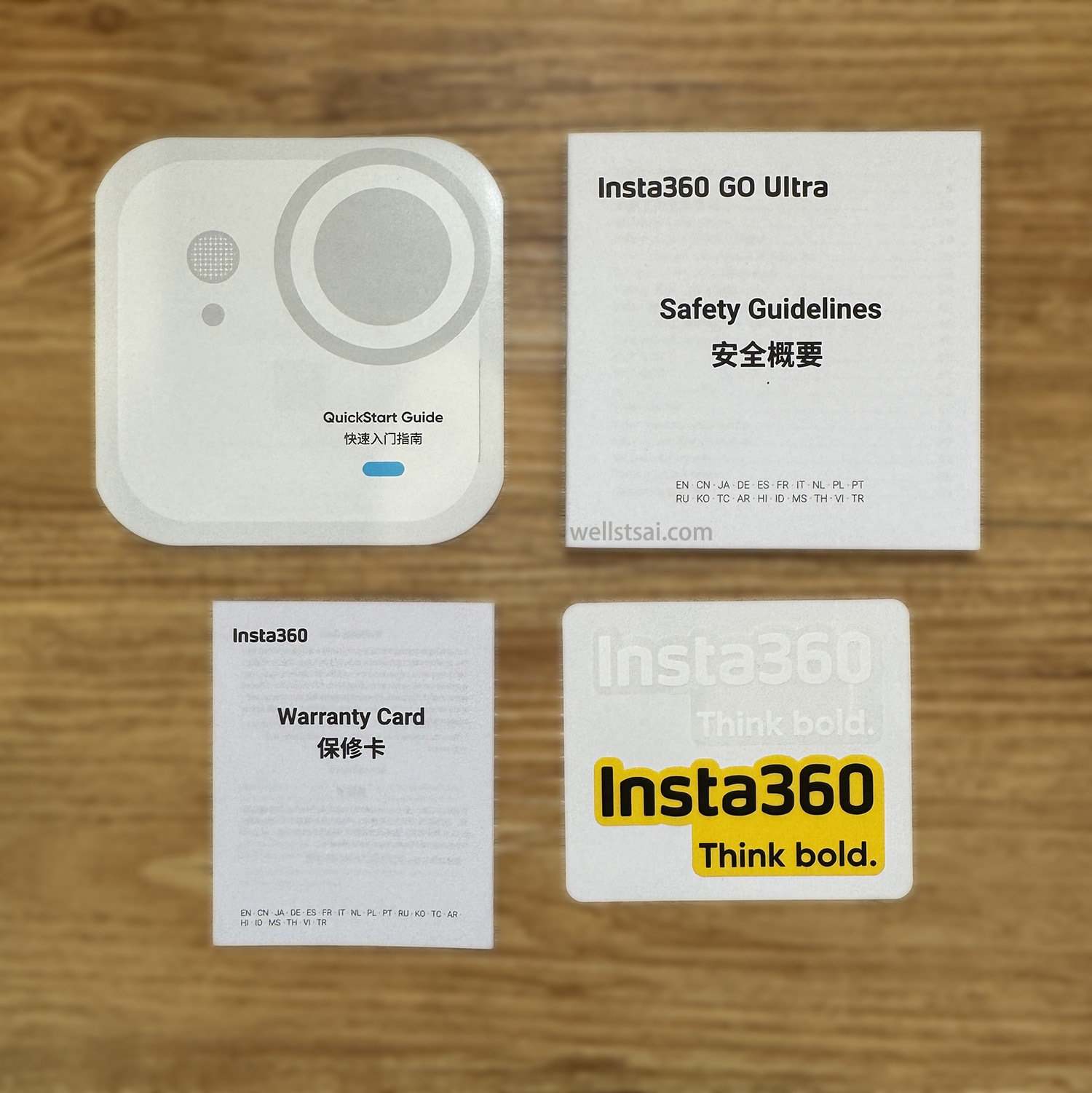
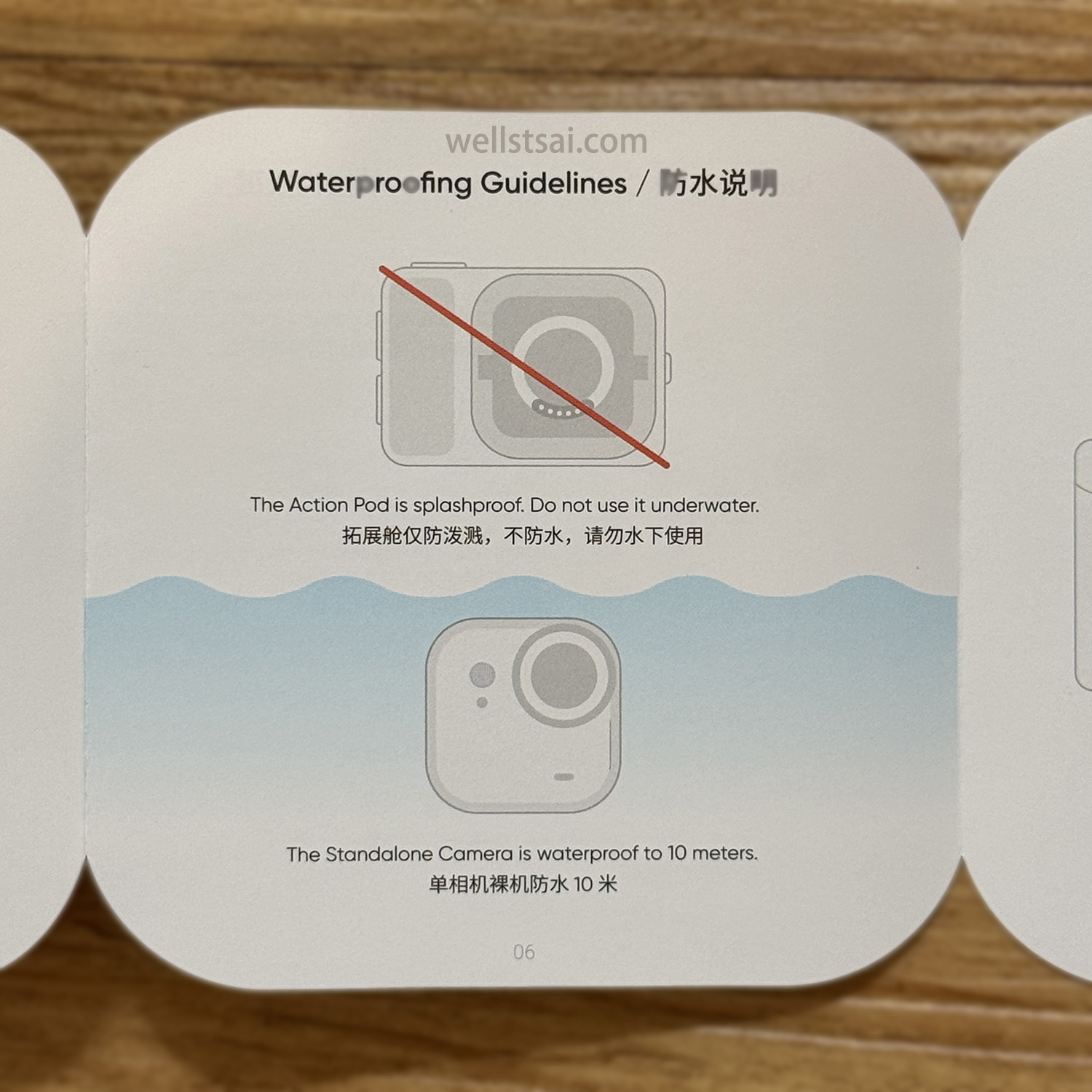
The box includes a quick start guide, safety manual, warranty card, and brand stickers—everything you’d expect.
An important note is that the Action Pod is only splash-proof and should not be submerged in water, whereas the main unit is waterproof up to 10 meters.
Lanyard and Storage
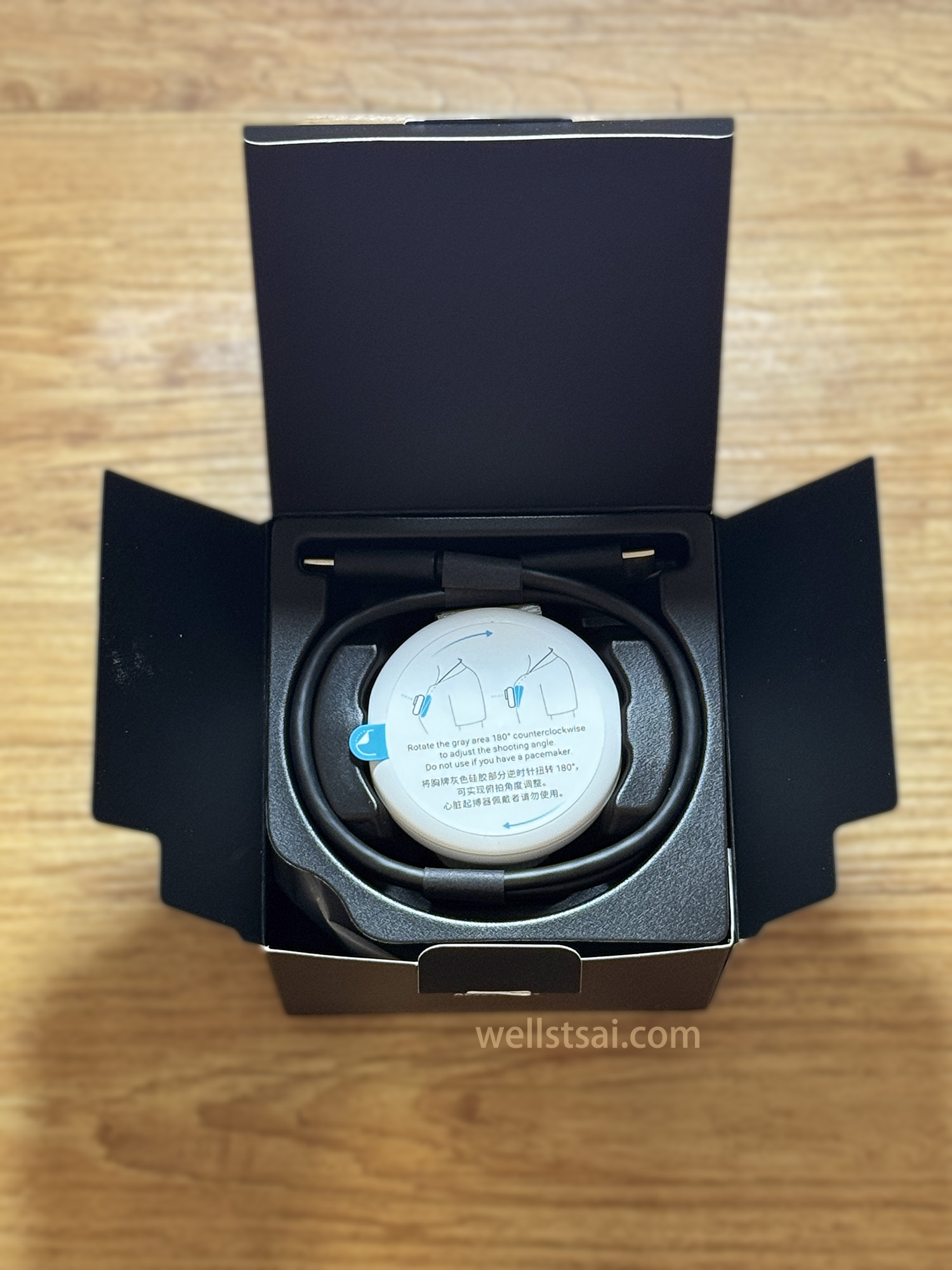
The included magnetic pendant allows you to wear the camera on your chest, which is ideal for sports or on-the-go shooting. It’s currently the accessory I use most often.
Complete Set of Accessories
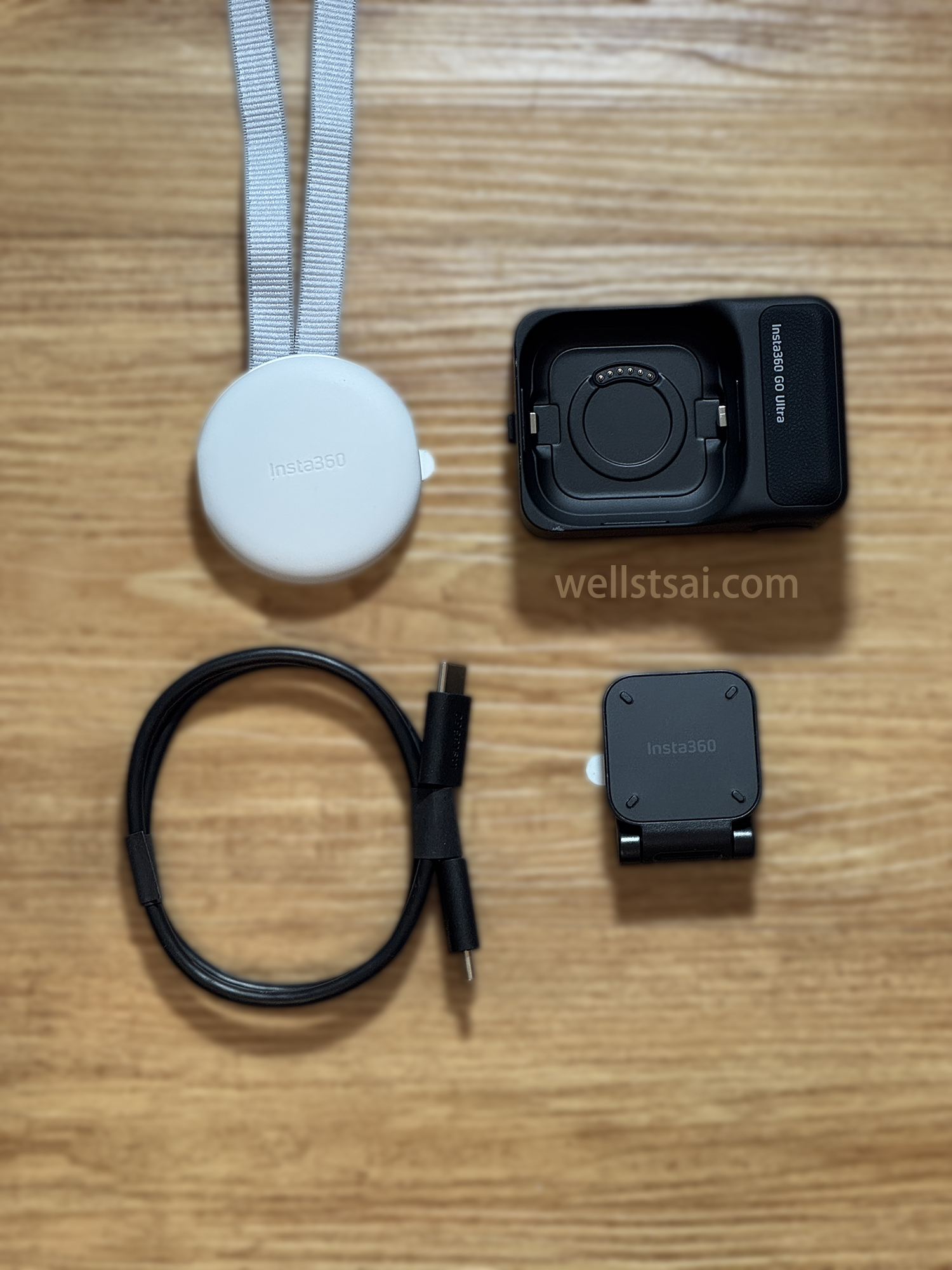
The main accessories include:
- Magnetic Pendant (top left)
- Quick-Release Safety Cord
- Magnetic Easy Clip (bottom right)
- Action Pod (top right)
Other missing accessories, like a third-party base compatible with a 1/4″ to three-prong adapter or a compatible selfie stick, can be found. You are not limited to using only official accessories, so you can purchase more later based on your needs.
Power-On and Setup
Language Selection
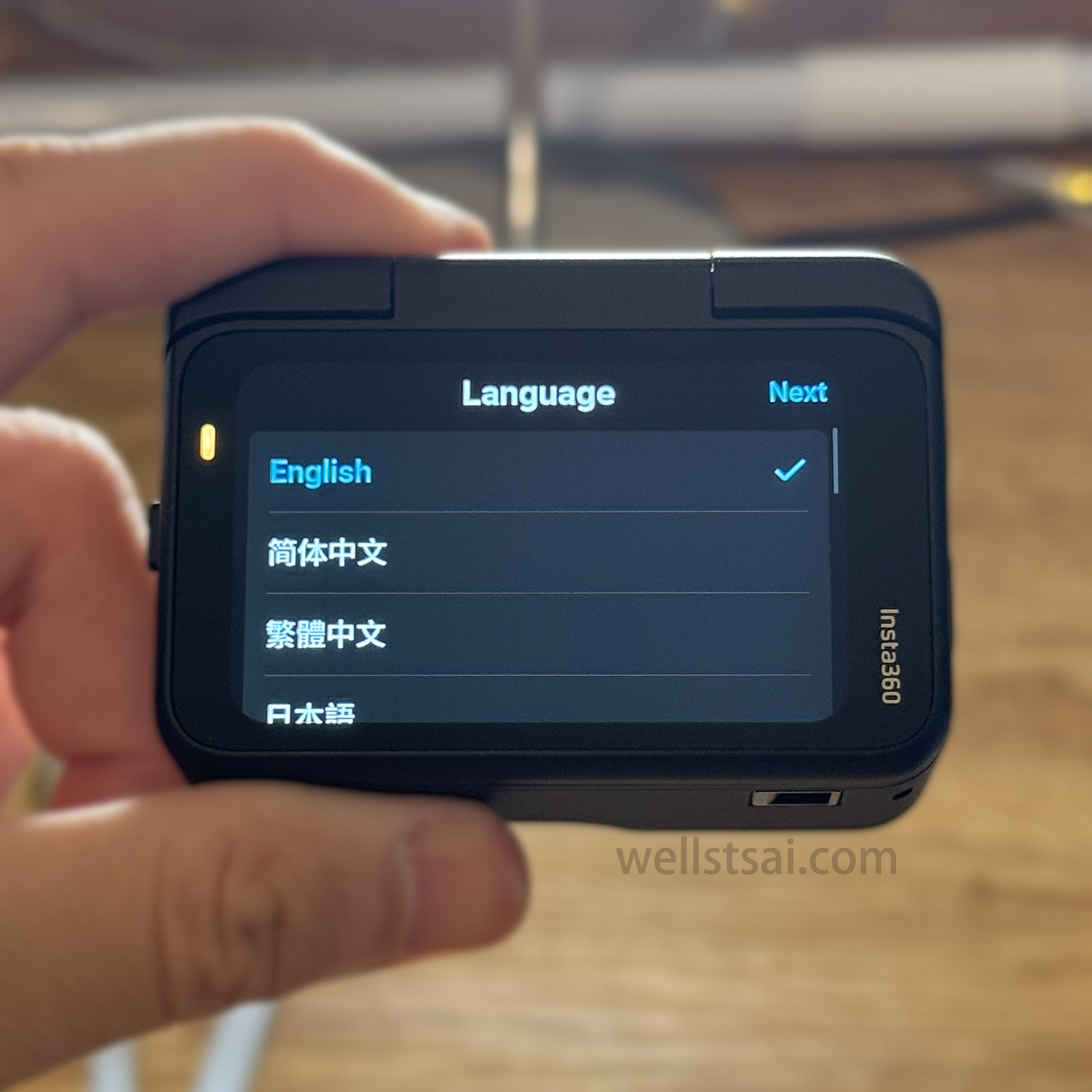
When you first turn on the camera, you can select the interface language, with support for Traditional Chinese.
App Connection and Firmware Update
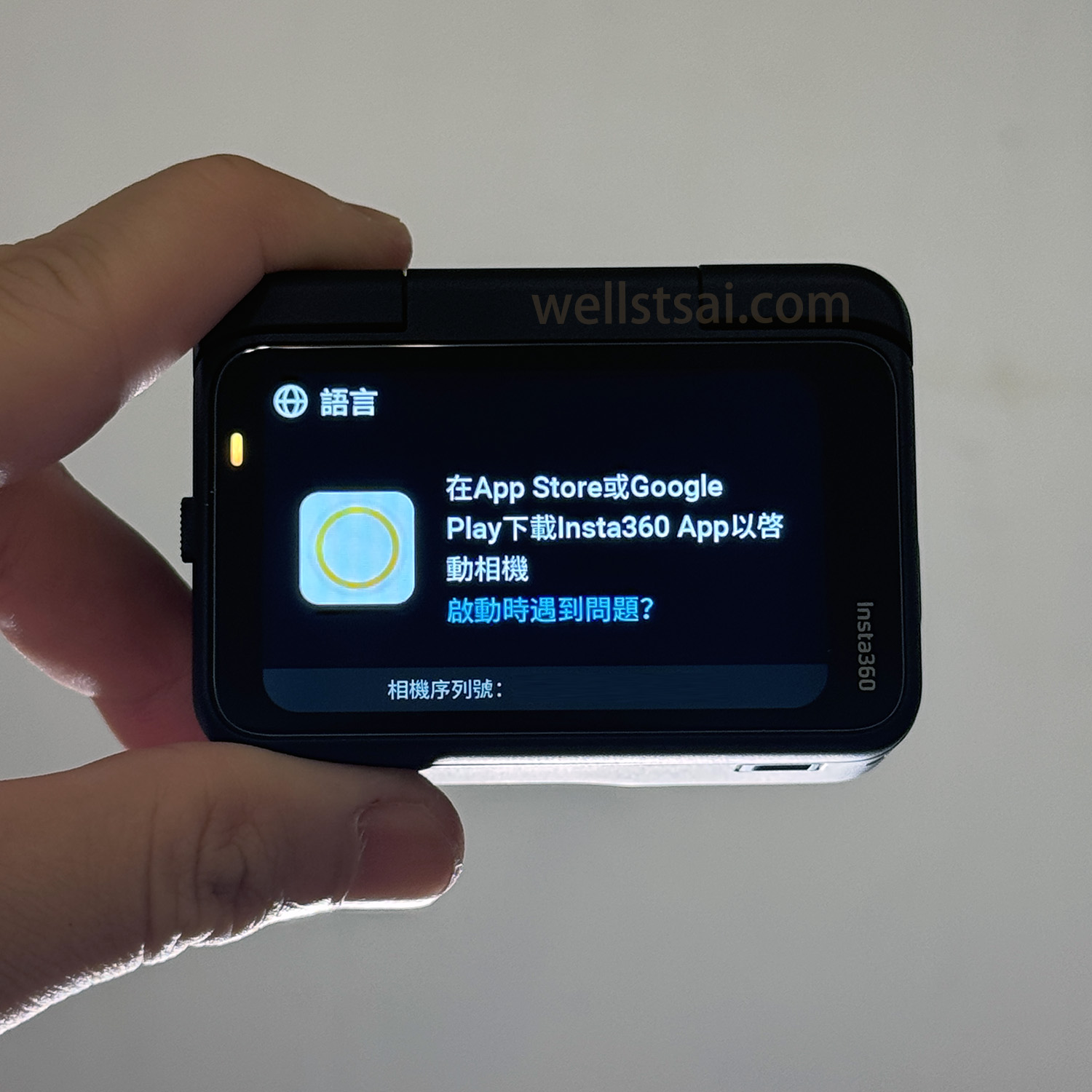
The system prompts you to download the Insta360 App. You can quickly complete the setup by scanning the QR code to connect.
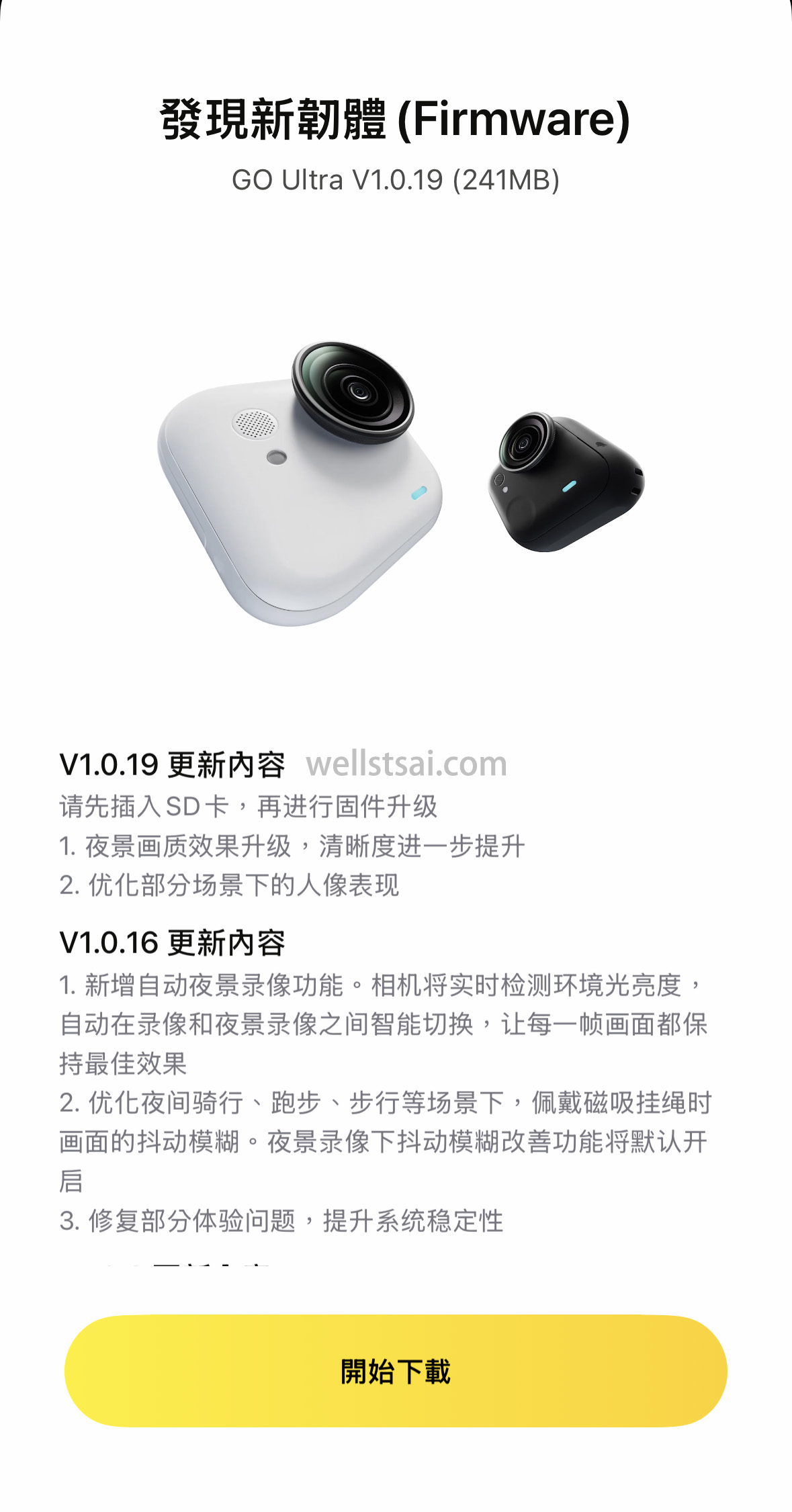
Upon first connecting to the app, the system will automatically detect and prompt you to update to the latest firmware.
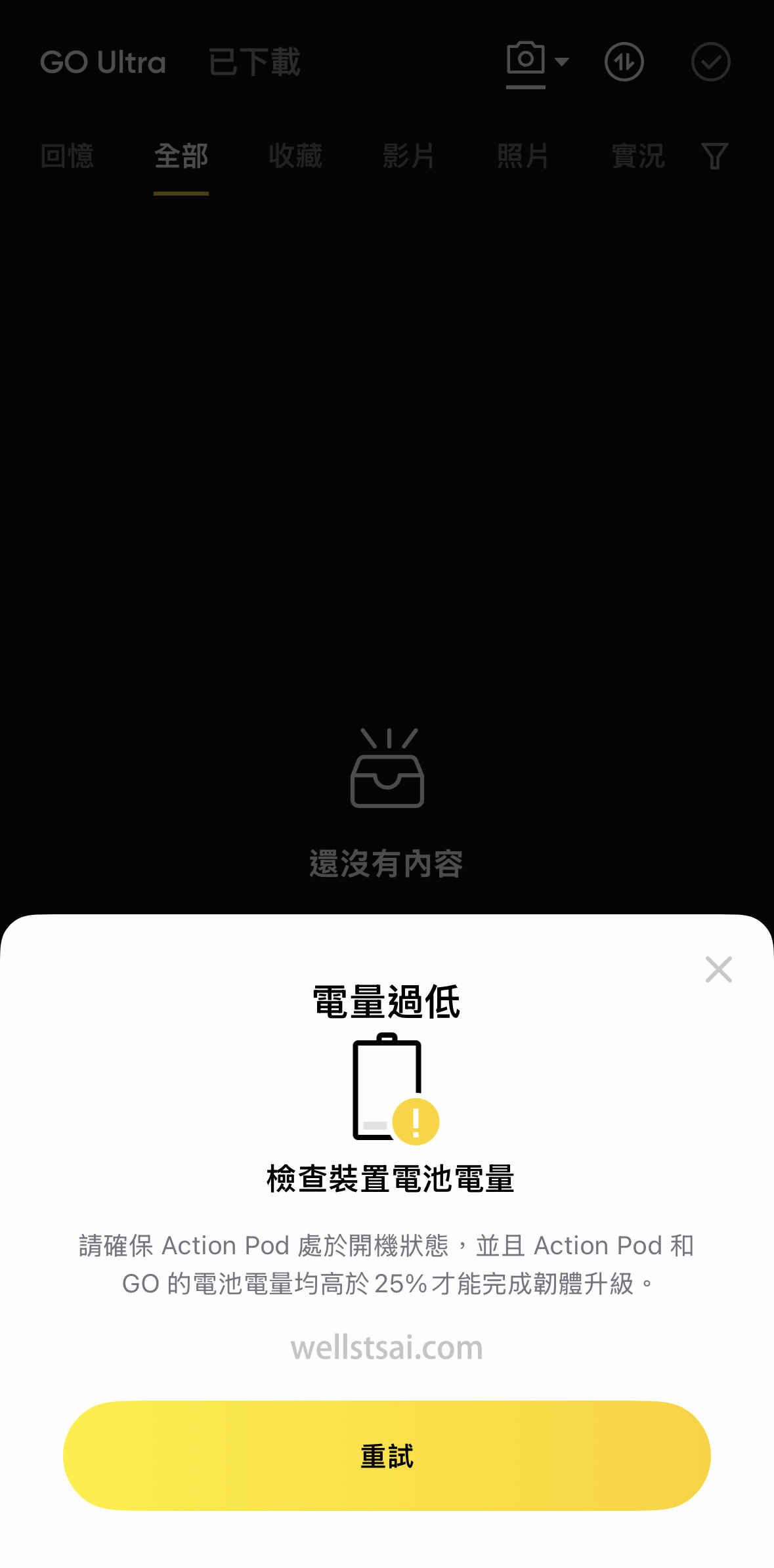
However, since the camera’s battery is usually not fully charged out of the box, the app will require you to charge it before starting the update if the battery is too low. This means there will be a waiting period for charging and updating before you can start using the camera.
After the update is complete and you’ve registered an account, you’re ready to go.
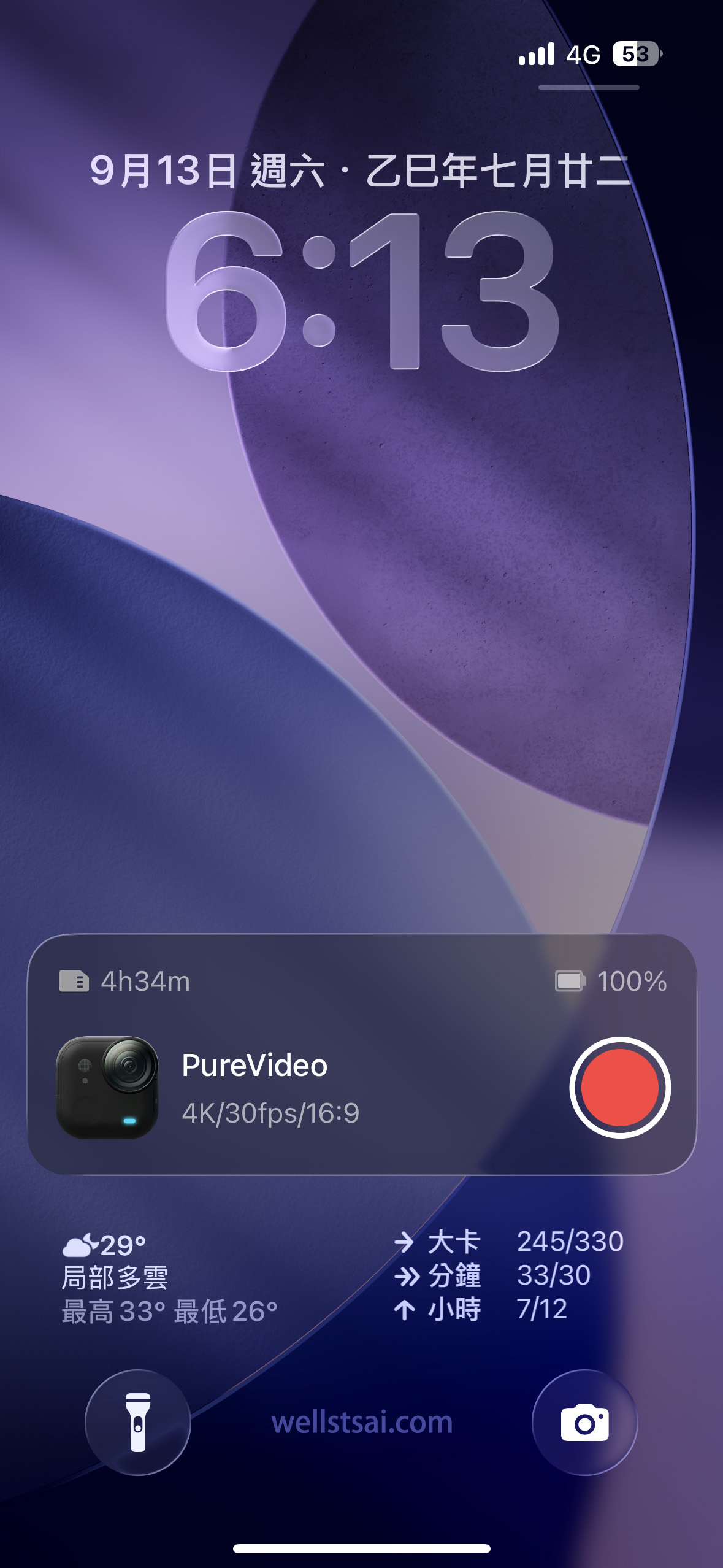
The Insta360 App’s integration is excellent, especially with its support for the iPhone’s “Live Activity” feature, which allows users to control recording directly from the lock screen, making it very intuitive and responsive.
Sample Footage
The video was filmed at the Shanhua Cow Market in Tainan.
The “cow market” (牛墟) was a place for trading cattle in traditional agricultural society. The Shanhua Cow Market, established around 1870, is one of the most famous and largest in Taiwan. However, in 1999, due to an outbreak of foot-and-mouth disease, the government banned cattle trading, bringing an end to this practice.
Today, the Shanhua Cow Market has transformed into a regular farmers’ market, open on the 2nd, 5th, 8th, 12th, 15th, 18th, 22nd, 25th, and 28th of each month. It sells agricultural tools, seedlings, poultry, fruits and vegetables, and daily necessities, making it a very lively place. Additionally, its local delicacies, such as fresh beef soup, are quite famous and attract many foodies.
Conclusion
After a month of use, I believe the core value of the Insta360 GO Ultra lies in its irreplaceable “portability,” something that is hard to match with an iPhone or other cameras.
Compared to flagship smartphones, it is not only lighter and more affordable, but its unique magnetic design also opens up a variety of shooting perspectives—whether attached to a pet’s collar or completely freeing your hands to avoid fatigue from long-term holding, this is its greatest advantage.
Shortly after I got it, DJI launched the Osmo Nano, but each has its own merits. I have a detailed comparison in another article, “Action Camera Showdown: Osmo Nano vs. Insta Go Ultra”. Although the Go Ultra is slightly more expensive and its USB 2.0 transfer speed is a clear drawback, it is more appealing in other aspects, such as supporting Apple Find My, having a large flip screen, and a well-developed app for editing and sharing. For me, these advantages far outweigh the disadvantages.
